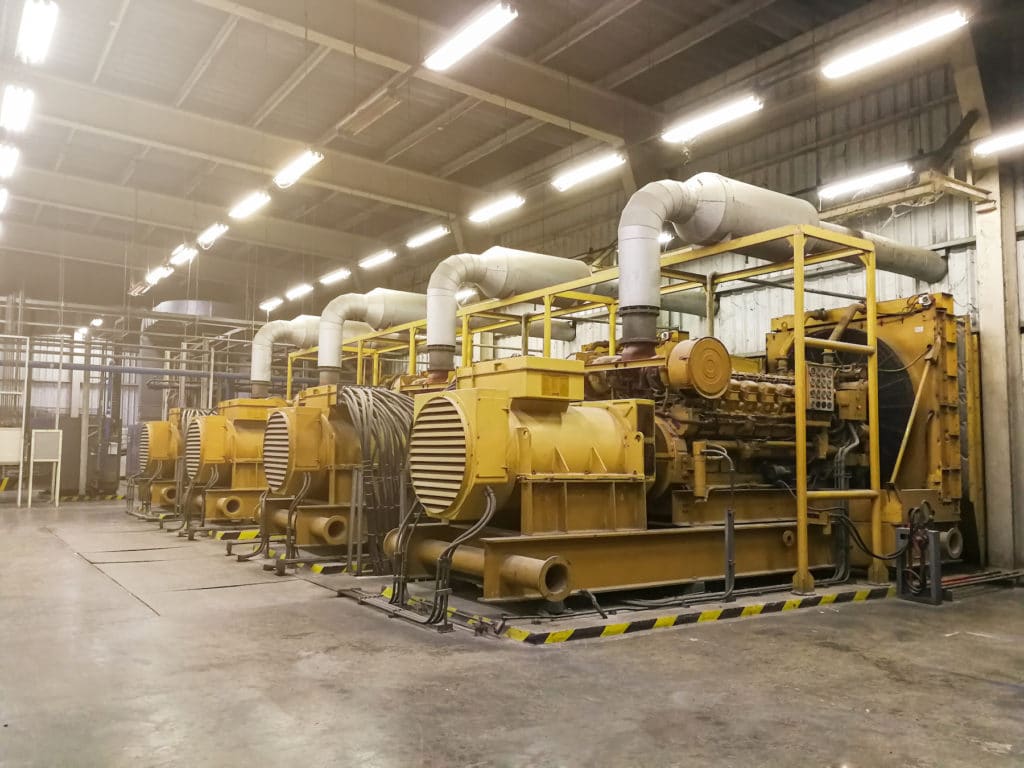The world requires the production of energy. Industries such as oil and gas, construction, manufacturing, and other commercial ventures all require the use of a tremendous amount of energy to power their infrastructure and operations. Large buildings like hospitals, factories, or military installations need to be powered with reliable sources of energy for essential tasks and operations. Central to much of this powering is the trusted industrial generator.
Remsa USA specializes in fixing these amazing machines. The generator has been a trusted friend for many industries but also during much of early industrialization. This apparatus has served essential purposes, but its story is not so simple.
An Important Invention: Turning Mechanical Energy Into Electricity
An early image of a generator is hardly recognizable compared to the massive and powerful machines we have today. In the 1830s, a seemingly simple device created by a man named Michael Faraday would change the course of manufacturing and other industries. Already by this time, the Industrial Revolution had taken hold in a lot of places in the West.
A British scientist working for the Royal Society in London came to the conclusion that a more powerful and efficient way of creating energy was needed. He began to experiment. His predecessors and inspiration were people such as Alessandro Volta and Hans Christian Oersted and their work with batteries, magnetism, and motion. His first iteration of a ‘generator’ was a simple contraption of a tube covered in copper wire insulated with cloth. He used a magnet and a galvanometer to measure electric current and found that he could generate electricity this way. This was the beginning of the generator—which is meant to convert mechanical energy into electricity.
The concept uses motion to convert it to electricity and regardless of the energy source—water, wind, steam, oil, or coal—the principle works the same.
The main components of most modern generators include:
- The engine
- Alternator
- Fuel system
- Voltage regulator
- Cooling and exhaust system
- Lubrication system
- Battery charger
- Control panel
- Main assembly/frame
Different Types of Generators Across Industries
Industrial generators and residential generators are different in power generated, resistance, size, some components, but generally operate in the same way. Industrial generators, however, must withstand harsher conditions and prolonged usage for extended periods of time.
A generator is considered industrial when it produces 150kW to 2 megawatts of power, although opinions vary on this. Sizes in industrial generators can vary from 20kW to 2500kW. Industrial generators need to be sturdier and far more resilient, as they are often operating under less-than-ideal conditions.
These generators are also not as movable as your typical residential one; they usually require to be moved by forklift or crane. Choosing the right industrial generator for your needs is a consideration not to be taken lightly.
Examining the Difference in Power Requirements
Every industry has different energy needs. Generators can produce one-phase or three-phase power, 120 volts or 480 volts. The oil and gas industry, for example, requires a reliable and fast energy response. Generators used in the industry require a broad power range from 10kW to 2500kW that is reliable and has undergone rigorous testing.
Diesel Generators
Diesel engines serve a variety of purposes in the manufacturing industry. These engines are known for their durability and the lower-maintenance required to keep them running optimally for longer periods. Diesel fuel burns a lot cooler than gasoline and therefore reduces the heat and the wear on the engine.
Natural Gas Generators
Natural gas generators will use propane or liquefied petroleum gas instead of gasoline or diesel. In recent years natural gas generators have become a large share of overall generation capacity in the U.S. These generators have proven to be cost-effective, efficient, and a lot more green. Within the category of natural gas generators, you can also find different types including standby and prime generators depending on the needs of the particular industry. These types of efficient generators are used in various industries including hospitals, nursing homes, and similar facilities that require a continuous power supply.
Petroleum Generators
Generators powered by gasoline might often be the most economical to operate. These generators do require more extensive maintenance than natural gas generators. The gasoline causes the engine to wear faster and there is a higher potential for fire and explosion. For large industrial applications, gasoline might not always be the preferred choice for many industries.
Need Generator Maintenance? Call Remsa USA and Ensure Continued Operations
Regardless of what industry you are in, your generator is essential for the continued operation of your infrastructure and business. Any disruption can be catastrophic and have serious consequences. Call the professional technicians here at Remsa USA and keep things running!
